La kw’átsetes thútl’o… means ‘She went and looked…’.
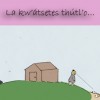

La kw’átsetes thútl’o… means ‘She went and looked…’.
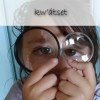
Kw’átset means ‘to look at’.
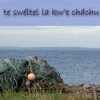
Te swéltel la kw’e cháchu means ‘the nets at the beach’ or ‘the nets at the shore’.
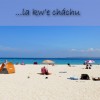
…la kw’e cháchu means ‘at the beach’ or ‘at the shore’.

Cháchu means ‘beach’. You can also use it for any type of shore, such as the shore of a river.

Osu éwe, ewesthóxes means ‘(She) said no, no to me’.

Ewesthóx means ‘to to say no to me‘. You can also translate it as ‘to deny me‘, or ‘to refuse me’.
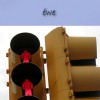
Ewe means ‘no’. You can also use ewe for ‘not‘, as in I am not going ‘- Ewe tsel lil hálém).
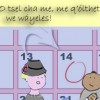
O tsel cha me q’ólthet we wáyeles means ‘I will come back tomorrow’, or ‘I’m going to come back tomorrow’.
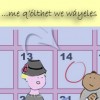
…me q’ólthet we wáyeles means ‘…to come back/return tomorrow’. This is part of a larger sentence.
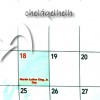
Cheláqelhelh means ‘yesterday’. You can also use a slightly shorter form, with the same meaning, like this: cheláqelh.
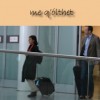
Me q’ólthet means ‘to return’ or ‘to come back’.
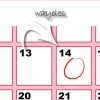
Wáyeles means ‘tomorrow’.
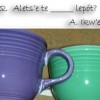
Use this dialogue to have simple conversations about colours. The dialogue uses lepót (cup) as an example, but you can substitute any other objects, such as articles of clothing.

Once you know your basic colours, use the pattern shown in this dialogue to have simple conversations with your family.
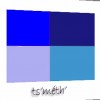
This is another practice video for reviewing Halq’eméylem Colours. This is a more advanced version: you have just three seconds to say each colour before the Elders!
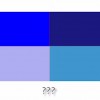
Use the video in this post for some more advanced practice with Halq’emeylem colour terms.
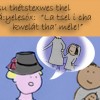
Osu thétstexwes thel á:yelesóx: “La tsel i cha kwelát tha’ méle!” means ‘So she said to my (late) mother: I am going to take your daughter’.
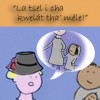
La tsel i cha kwelát tha’ méle means ‘I am going to take your child’. (Note: when the xwelitem lady says this, she means that she is going to take Elizabeth on a short trip only; this will become clear later in the story.)
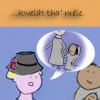
…Kwelát tha’ méle means ‘…take your child’. This is not a command, but rather part of a larger sentence which we will build up to in the next few posts.
